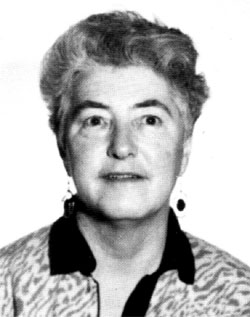
Tina Brodetsky
|
Born in Odessa, in 1934, she experienced anti-Semitism in high-school, after which she became an ardent activist in an underground Zionist movement. From 1955 onwards, Tina and her parents, Yehoshua Drobovsky and Bella had secret contact with the representatives of the Israeli Embassy in Moscow and directly with Israel. In 1958 Tina and her father were arrested, charged with Zionist propaganda and with "criminal connections with some persons in the Israeli Embassy in Moscow", and sentenced by a military tribunal to 3 years imprisonment. She spent her sentence in the infamous Moscow prisons Lubianka and Lefortovo and was released in 1961, but her family and she did not stop their Zionist activities until 1970 when the family of Tina Brodetsky received instructions to leave the USSR within 4 hours. They arrived safely in Israel.
|
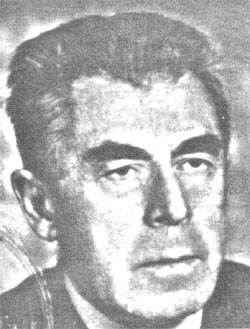
Yehoshua (Evsei) Drobovsky
|
Born in 1905 in Russia, he was a member of an underground Zionist organization in Moscow in the 50s and published some articles in foreign journals supporting Zionism and Israel. Arrested in Moscow in 1958, he was charged with the publication of anti-soviet articles in the foreign press and with Zionist activities. For this he spent more than 2 years in Moscow prisons. Together with his family, he got out of the USSR in 1970 and went to Israel where he died in 1978.
|
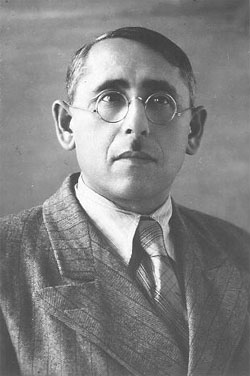
Yosef Kamen
|
Born in 1902 in the shtetl Nadezhnoe, in the district of Mariupol, Ukraine, he graduated from Donetsk Mining Institute in 1927. For several years he taught Electrical Engineering, and in 1940 earned his PhD. In 1958 he was arrested (together with Shimon Podolsky, Dora Kustanowich and Baruch Podolsky) for having Israeli publications in his possession and was sentenced to 3 years imprisonment. Having spent 2 years in the camps of Mordovia, he was released in 1960, after which he taught Hebrew, getting permission to leave the USSR in 1971 when he and his family went to Israel. From 1971 till 1981 he taught electrical engineering in the Holon Institute of Technology, wrote several textbooks on electrical engineering in Hebrew and also wrote a Hebrew-Russian Electrotechnical Dictionary. He died in October, 1982 and was buried in Holon. The Hebrew-Russian Electrotechnical Dictionary was published posthumously.
The information about Yosef Kamen was provided by his daughter Lidia Podolsky (Kamen).
|
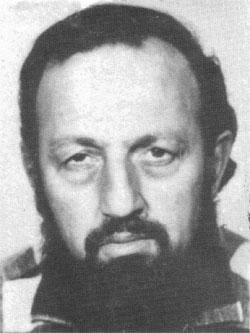
David Khavkin
|
Born in 1930 in Moscow, he participated in the fight for Jewish emigration from the Soviet Union to Israel from 1953 to 1958. In 1958 he was arrested and charged with Zionist activity in general, with "organizing and teaching Zionism to Jewish youth in Moscow and in establishing and keeping criminal connections with some workers of the Israeli Embassy" in particular. He was sentenced to 5 years in the Gulag, and spent his time in the infamous Dubrovlag. After his release he renewed his struggle for the right to emigrate, and finally, in 1969, succeeded in leaving the USSR for Israel.
|
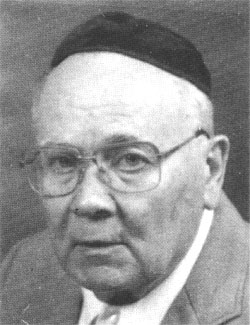
Mordecai Khazin
|
Born in 1918 in the town of Brotchni-Hutton, Romania, he was, from an early age and up to 1940, an active member of "HaShomer HaTzair". In 1958 he was arrested for connections with his relatives in Israel and for a letter he wrote addressed to the President of the State. He was sentenced to 7 years in the Gulag and 5 and half years in exile. He was released in 1972, and in the same year went to Israel.
|
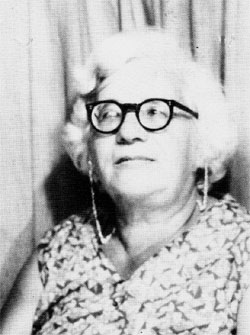
Dora Kustanowich-Podolsky
|
Born in 1911 in Belarus, she distributed Zionist materials and literature among Jews and printed articles and essays on the Jewish problem in the Soviet Union, which were also forwarded to the West. She was arrested in 1958 in Moscow, together with her husband Shimon Podolsky and their son Baruch, and charged with Zionist activities and anti-Soviet propaganda. Sentenced to 7 years in the Gulag, she spent her sentence in various Siberian camps. Released in 1965, she went to Israel in 1969. She died in 1980.
|
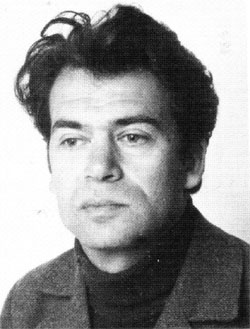
Yuri Mekler
|
Born on January 30, 1930 in Leningrad, he was involved as a young man in an active Zionist movement in his hometown, agitating for emigration of Jews to Israel and the legalization of the Hebrew language and Jewish culture in the Soviet Union. Arrested in 1958, he was charged with subversive Zionist activity and was sentenced to 4.5 years in the Gulag. Released in 1963, he went to Israel in 1972.
|
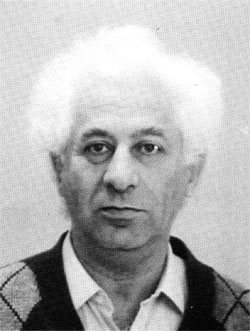
Baruch Podolsky
|
Born on February 18th, 1940 in Moscow, he was involved in Zionist activity from an early age. Arrested in 1958 for the distribution of books, pamphlets and newspapers which he received from the Israeli Embassy in Moscow, he was sentenced to 5 years in the Gulag. Released in 1963, he continued his Zionist activities. In 1967 he was arrested again, because he refused categorically to inform on his friends about their Zionist activities. This time he was sentenced for "hooliganism" to 2 years in the Gulag. He was released in 1969, and in 1971 his dream of making aliyah came true. Professor of Tel-Aviv University, Dr. Baruch Podolsky earned his PhD in semitology. He is an author and editor of several Russian-Hebrew and Hebrew-Russian dictionaries.
|
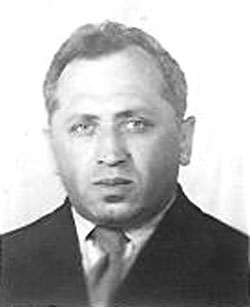
Shimon (Semion) Podolsky
|
Born in 1906 in the shtetl of Vorontsovka, in the Herson district, Ukraine, he was heavily wounded at the front line while serving in the Soviet Army. After WWII he graduated from the department of History of the Moscow State University and worked as a history school-teacher. From early childhood he was fluent in Yiddish and Hebrew. In 1958 he was arrested (together with his wife Dora Kustanowich-Podolsky and their son Baruch) for the collection and distribution of Israeli literature and charged with anti-Soviet and Zionist activities. Sentenced to 7 years imprisonment in the Gulag, he spent all the 7 years in the camps of Mordovia. In 1965 he was released, and in 1968 went to Israel together with his wife. He died in October 1969, just in 4 months after reaching Israel, and is buried in Akko (Acre).
The information about Shimon Podolsky was provided by his son, Dr. Baruch Podolsky.
|
|